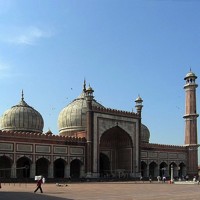The ongoing Shiite-Sunni cold war that is manifesting itself throughout the Middle East may be beginning to spill over into India. Home to a large Muslim minority consisting of both major sects of Islam, India has recently found itself forced to deal with increasing fallout from the intra-Islamic struggle. At one of the end of the spectrum was the attack against an Israeli diplomat possibly orchestrated by Iranian proxies; at the other were the recent violent protests by a Saudi-funded seminary in the heart of Mumbai. Given India’s dependence on energy exports from the wider Islamic world and the nation’s history of Hindu-Muslim violence, the coming decade will be a test of both India’s diplomacy and its ability to promote intercommunity dialogue.
Historically, Islamist violence in India was generally limited to the Kashmir valley, where Muslim separatists forced out half a million Kashmiri Hindus from the area in the late-1980s. However, heightened sectarian tensions in the 1990s made it easier for Middle Eastern interests to radicalize segments of the Indian Muslim population, especially among those that had ties to criminal networks operating out of places like Dubai. This process may have accelerated in the past decade, especially in the context of the global war on terror, which many Muslims in India, as elsewhere, perceived as being directed at them.
India’s most recent troubles with Islamist-related violence began in the second week of August, when a protest by a gathering of local Muslims in central Mumbai turned violent. The crowd of about 15,000, which had gathered to vent its opposition to attacks against their co-religionists in Myanmar and the Indian state of Assam, suddenly turned violent, setting media vans ablaze and assaulting the police. The violence left two dead and several injured. The group responsible for the disturbance was identified as the Raza Academy, a Sunni organization with branches in Pakistan and known to be funded by Saudi sources.

